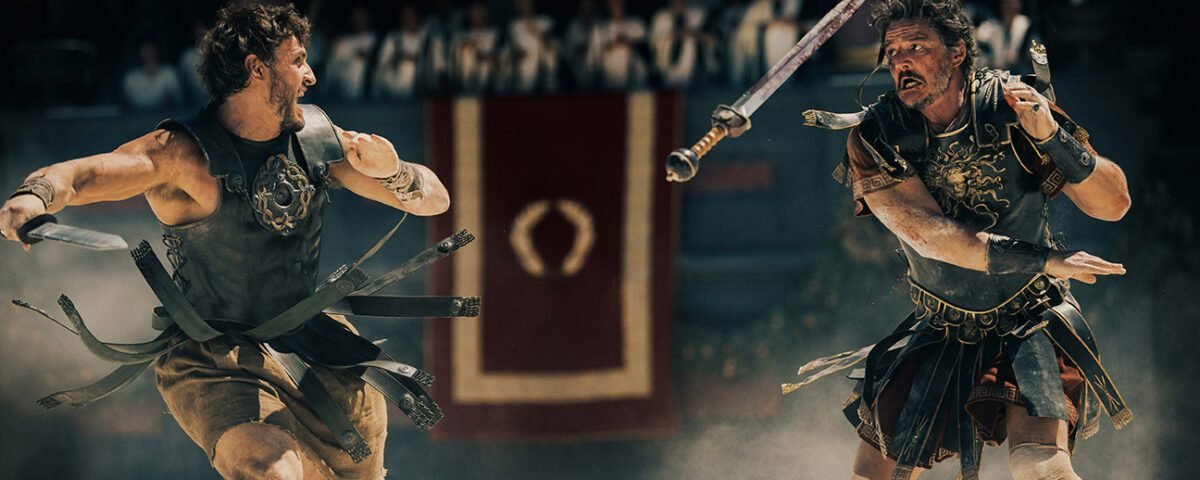


‘The Best Christmas Pageant Ever’ Review: Judy Greer in an Uneven Holiday Flick with an Ecclesiastical Spin
November 9, 2024


‘Singham Again’ Review: Bigger Doesn’t Mean Better in Rohit Shetty’s Overstuffed Indian Action Sequel
November 13, 2024Pedro Pascal, Joseph Quinn and Connie Nielsen also star in the bruising sword-and-sandal epic, set 15 years after the events of the original Oscar-winning drama.
Gladiator II
More visceral than emotional.
Few contemporary directors are tackling movies of the scale and muscularity that Ridley Scott, still going strong at 86, brings to Gladiator II. In terms of brutal spectacle, elaborate period reconstruction and vigorous set pieces requiring complex choreography, the sequel delivers what fans of its Oscar-winning 2000 predecessor will crave — battles, swordplay, bloodshed, Ancient Roman intrigue.
The screenplay, credited to David Scarpa (who wrote Napoleon and All the Money in the World for Scott), often seems as close to a remake as a sequel. It follows the template of David Franzoni’s earlier Gladiator script almost beat for beat, most of its characters traceable to direct counterparts from that film.
The movie’s vitality gets a boost when it steps out from the original’s shadow, as it does with gusto whenever Denzel Washington is onscreen. He turns in a lip-smacking performance as Macrinus, a Machiavellian former slave now living in high style off the profits of his stable of gladiators and patiently plotting a secret agenda to acquire greater wealth and power.
Resplendent in costumer Janty Yates’ regal, multi-hued robes and dripping in jewelry, Macrinus corresponds to the late Oliver Reed’s memorable Proximo in Gladiator. But Washington brings such blinding charisma, steely authority and sly humor to the role that his self-made man with a devious plan is very much his own character, one almost worthy of a standalone film.
So where does that leave the new lead, Paul Mescal? The Irish actor steps into the strappy sandals of Russell Crowe’s Maximus and — as is indicated in the trailer, but stop reading if you’re spoiler-averse and don’t already know — is revealed to be Lucius, the exiled son of Maximus and Lucilla (Connie Nielsen). Mescal has bulked up for the role, so he’s physically convincing as a fighter with a knack for surviving in the arena. But his performance feels a tad flat at times, its narrow emotional range sticking mostly to the same notes of brooding intensity and simmering rage.
Some of Mescal’s best moments are Lucius’ quiet exchanges with Ravi (Alexander Karim), a soulful former slave and gladiator who earned his freedom but chose to stick around in Hell and serve as doctor to the wounded combatants. Ravi is to Lucius exactly what Djimon Hounsou’s Juba was to Maximus, a trusted friend and confidant. Karim is a superb scene partner and Mescal responds with warmth and gentle humor; their characters’ connection provides more access to the protagonist’s interior life than his seething glares.
By contrast, Lucius’ scenes with his mother are basically replays of Lucilla’s scenes with Maximus. In both films, Lucilla struggles to earn back the trust of an estranged man — one a former lover, the other a son — returned to Rome in chains and hungry for revenge. This is far from the only rote repetition in a narrative constrained by lazy writing.
Sent away by his mother at age 12 to keep him safe from the treachery of Rome, Lucius grew up in the North African province of Numidia. He has a loving wife, Arishat (Yuval Gonen), and is a valued leader in the outpost’s army, in which she also serves as a skilled archer. The movie opens with a thrilling siege sequence in which a fleet of Roman warships led by General Marcus Acacius (Pedro Pascal) descends on the Numidian fortress, capturing the city and claiming many lives.





